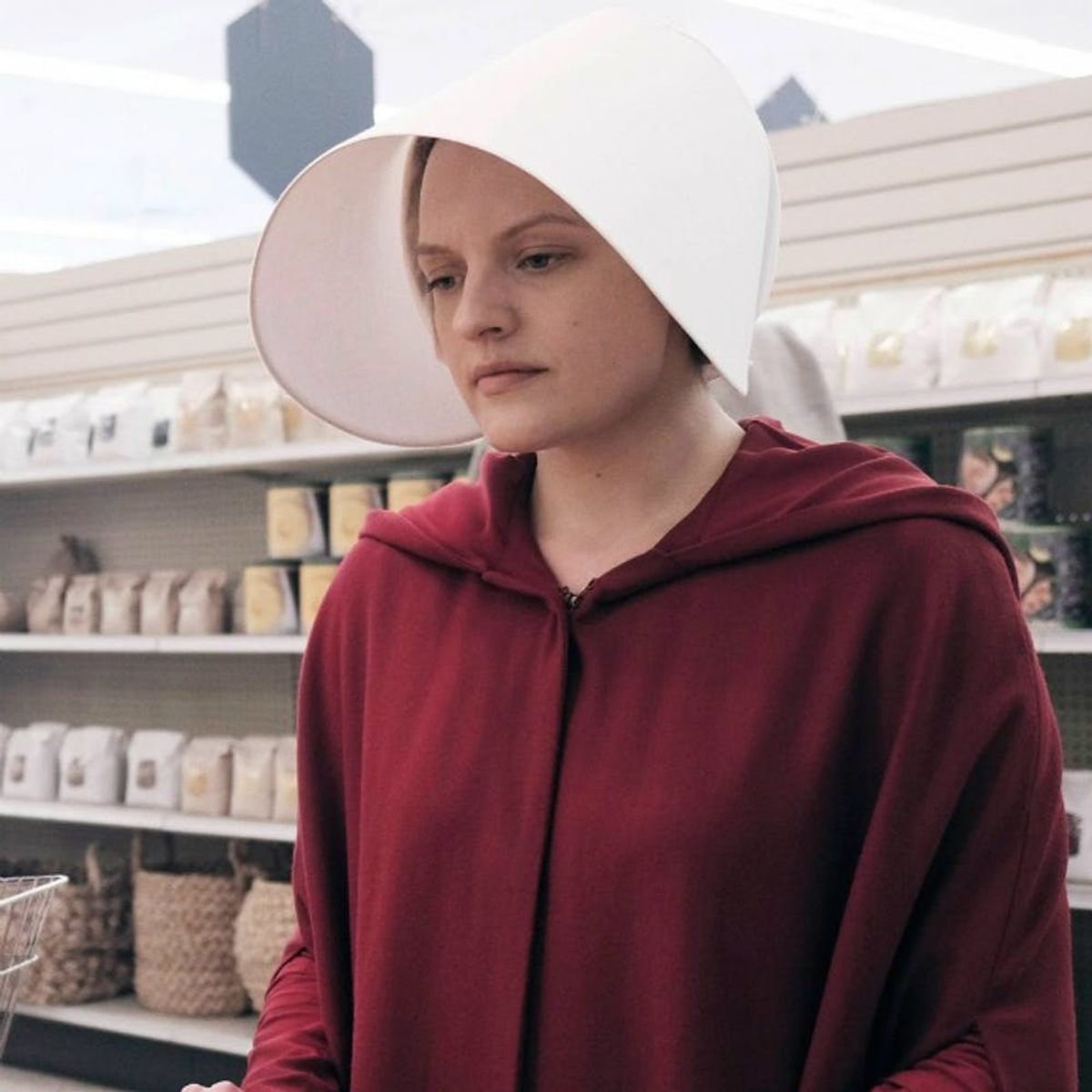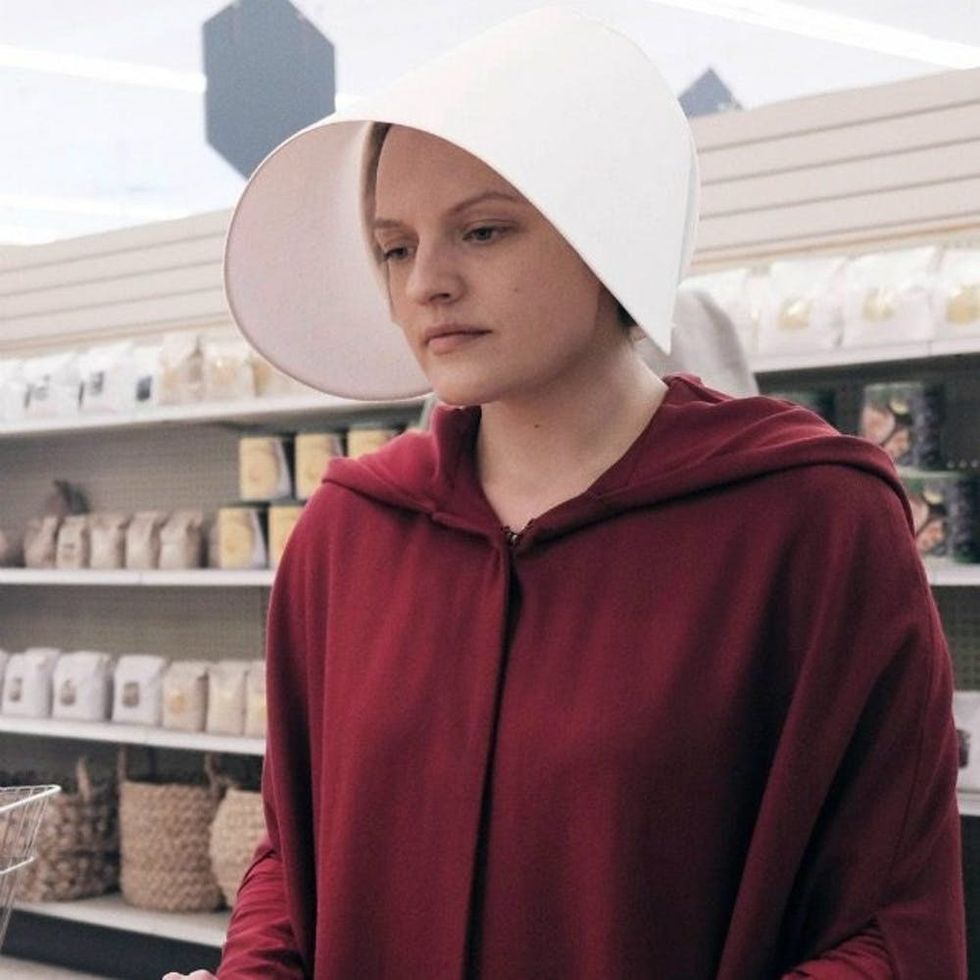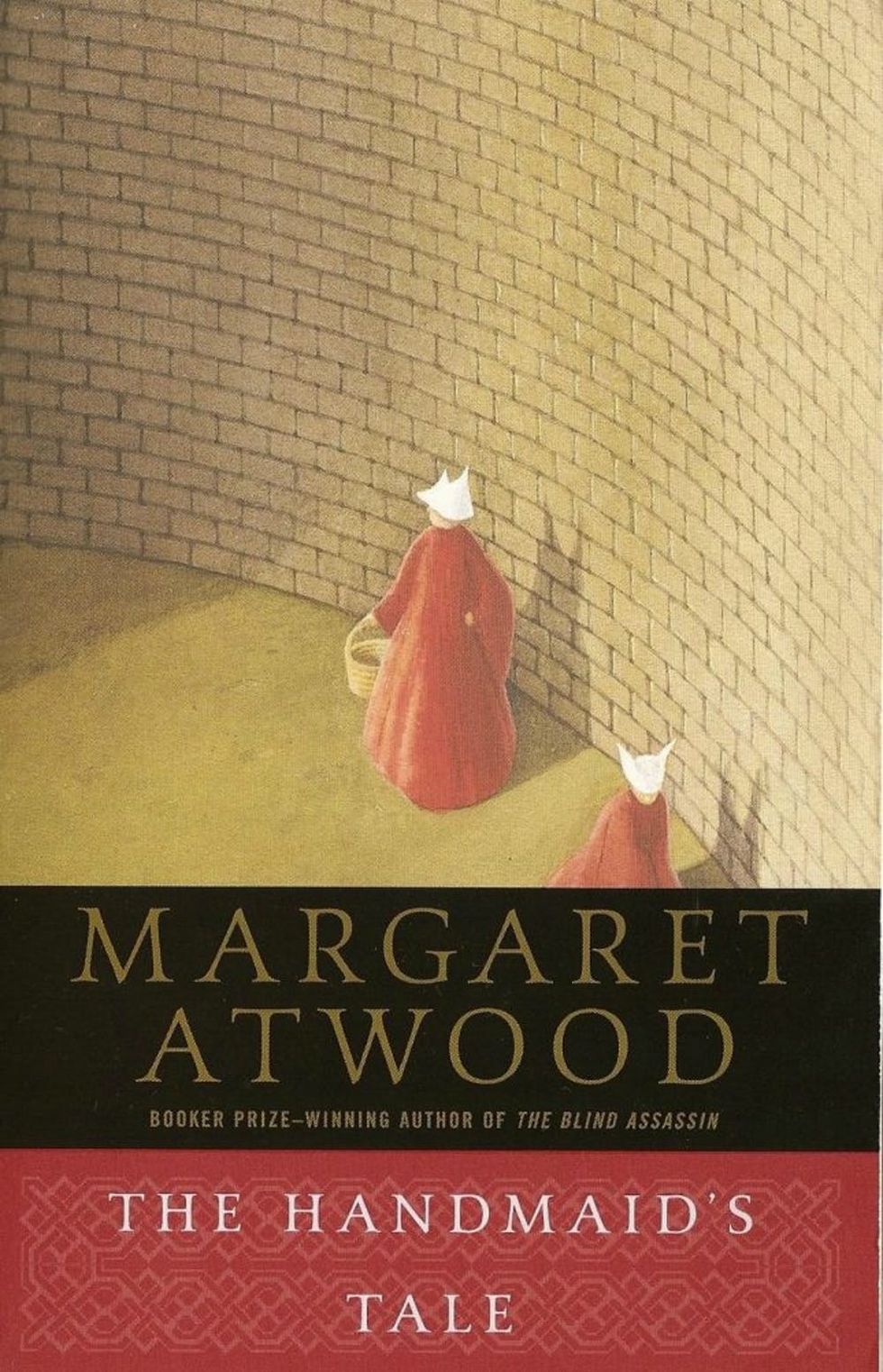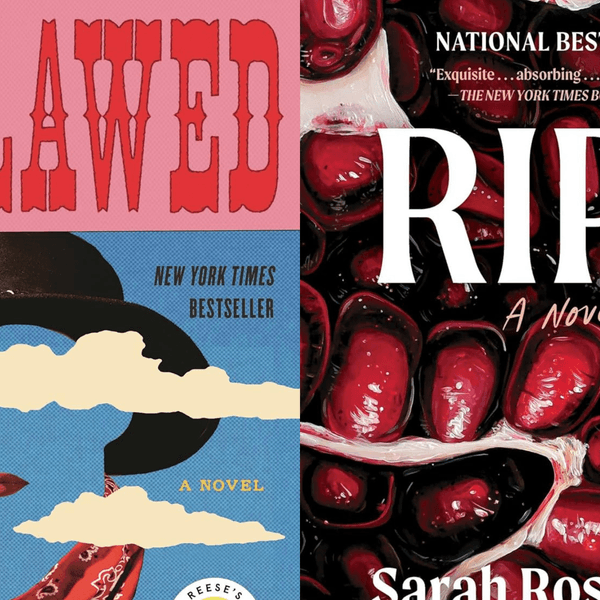Art imitates life.
4 Female Authors on Why The Handmaid’s Tale Is Shockingly Relevant Today

If you’re not already glued to your TV and watching Hulu’s latest adaptation of Margaret Atwood’s The Handmaid’s Tale, we highly suggest blocking off an entire day in your calendar to binge the groundbreaking first season. While the story has been shocking readers for decades with its eerily dystopian vision that tackles subjects from classism to the politics of reproduction, it’s clear that contemporary audiences are finding new meaning in the now classic story — so much so that Hulu has just announced a second season that will take the series beyond Atwood’s original novel.
So in order to better understand why Atwood’s original story is taking on new life in 2017, we decided to ask four contemporary authors why they believe The Handmaid’s Tale is resonating so strongly with audiences right now.

1. Joanna Scott, Author of Pulitzer Prize FinalistThe Manikin: “I have been haunted by The Handmaid’s Tale since I first read it, though its impact has taken different forms. I used to think the novel was offering us a vision of a possible future, as if the author were warning us: The fictional world of Marthas, Angels, Commanders, and Wives could be our world if we were stupid enough to let it happen.
Then I attended a reading by Atwood, and in her comments about the book she insisted that everything in the novel was based on current reality. “I did not make it up,” she said. “It is all true.” I was taken aback, but on second thought I was persuaded. Atwood didn’t need to make up stories of militarized reproduction and subjugation — she could base her account on actual models provided by repressive cultures from around the world.
More recently, I’ve come to realize that Atwood saw something in our own culture that I had managed to miss: Resistance to gender equality has been gathering strength for years. As the backlash against feminism engulfs us and our elected officials disassemble the parity many of us thought we could take for granted, Atwood’s novel has become newly resonant. She was right — she didn’t have to make it up.”
2. Kimberly McCreight, Author of The Scattering: “Many of us were devastated to see our dream of the first female president flame out so spectacularly this past November. But the current resonance of The Handmaid’s Tale extends beyond an exploration of gender inequity. What feels most prescient is the profound shock and bewilderment of the characters, confronting their new and extremely vicious society. Because, as Elisabeth Moss so chillingly utters in the series, “[N]othing changes instantaneously: In a gradually heating bathtub, you’d be boiled to death before you knew it.” There is the sense in The Handmaid’s Tale that the victims couldn’t have seen any of it coming. But also, that they should have. For those of us heartbroken by the current state of political affairs — from the evisceration of the ACA and the EPA, to the rise of immigration bans, Russian collusion, assault and battery, and alternative facts — the water has already grown perilously warmer. And as we sit up to our necks in it, dumbfounded, we wonder: How could this have happened? And then we think: But what if we should have seen it coming?”

3. Holly Walrath, Author of We Are Not the Young: “I’ve often thought how I wish that I could travel back in time and shove a copy of The Handmaid’s Tale into the hands of my college-age self. At the time, the idea of having a career as a writer and editor was so foreign to me that I never would have allowed for the kind of rule-breaking writing of Atwood to enter into my mind. Unfortunately, many of my college professors were still teaching the male canon at the time. Having discovered Atwood’s work only in the last few years, I can say that the interiority of the female characters is a huge part of its popularity today. Atwood has insisted upon not labeling the work as feminist, and while I admire this, I do think that there’s something inherently different about Atwood’s approach to writing and portraying the female which hasn’t been seen on television before. Here we have women who led real lives before Gilead took hold of them, lives that young women can relate to. But also, the women of The Handmaid’s Tale struggle so deeply with their place in the larger political sphere, they struggle […] to treat each other as friends or enemies, and this makes clear a deep-seated issue with our society still present today.”
4. Miranda K. Pennington, Author of A Girl Walks Into a Book: “I first encountered the original movie adaptation of The Handmaid’s Tale over a decade ago in college — I was mesmerized and horrified by this rigid, terrorized world that somehow seemed to tap into the same fears my friends and I had about our status in the world and our access to safe reproductive healthcare. Watching this new series, I’m struck by the same feeling of recognition. Though some critique the show for featuring so much female trauma, I think there’s something tremendously validating about seeing things we fear dragged into the light. It is scary, it is horrific, and when we share that fear and horror, it becomes less of a secret, makes it easier to bear, and easier to fight. Atwood’s work also sheds a harsh light on the hypocrisy of women who would deny other women reproductive freedom, and the callousness of men who are able to dehumanize women when it suits their purposes. The other great strength of this current adaptation is how it illustrates the gradual process of going from “normal” to Gilead in a series of repressive moves, some subtle, some vicious, that target women and girls. I think it counters the gaslighting we’re all experiencing on a daily basis and reminds us that survival may mean all kinds of compromises, but mostly it means never giving up.”
What are your thoughts about The Handmaid’s Tale’s relevance today? Tweet us by mentioning @BritandCo.
(Photos via Hulu and The Handmaid’s Tale)



















